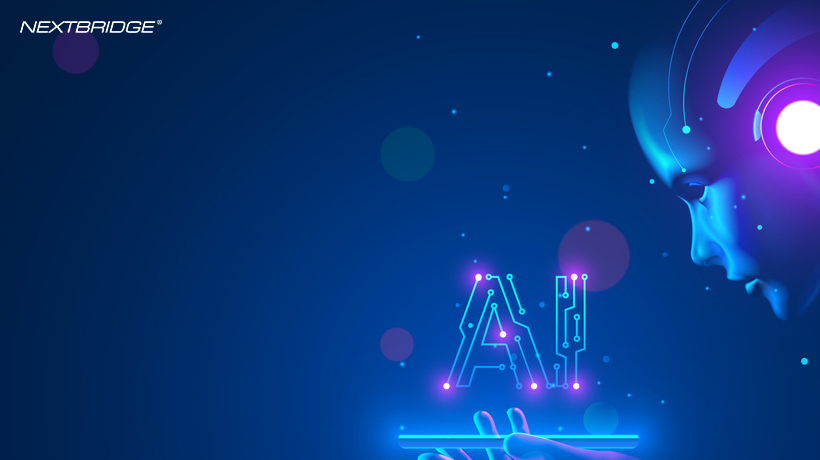 Back to all articles
Back to all articles
Blogs
What’s The Future of AI and AI Developers: Find Out Here!


Do questions like:
- Is AI programming the future?
- Or what is the future of AI developers?
running in your head around the clock? Well, we will answer all these queries in this article.
But, before that, let’s go through an astonishing example to understand what wonders AI (Artificial Intelligence) does in different aspects of life.
Apple’s Siri or Amazon’s Alexa helps users to perform different tasks. How? Simple and facile, by fetching users' details such as voice-over. Also, by utilizing these speech patterns, the software having AI does things with a snap of a finger.
This is how artificial Intelligence has brought about remarkable changes in life. It’s time to take a deep dive into the information and facts related to the future of AI.
So, let’s initiate a discussion!
The evolution and future of AI
If we talk about the growth or evolution of AI development, then trust us the sky is the limit. AI is touching the world’s edge with enormous expansion. Do you want authenticity?
Check these facts:
- IFM, being one of the best AI innovators, is growing too fast.
- 2300 patents were related to AI out of 9130, received by IBM inventors in 2021.
- Even Tesla's founder donated millions to the AI-based company in order to support the research conducted.
The story of evolution doesn’t end here. In fact, with the emergence of knowledge engineering, technology took a new turn and moved to algorithm-based and model-based machine learning.
Indeed, the future of AI is all vivid and happening. Below we will share some interesting quotes by tech gurus to increase your knowledge (of course, all for good reasons).
Mark Gazit, CEO of ThetaRay, shares his views:
“The world is moving from simple AI analytics to a more powerful form – artificial intuition. Up to this point, we’ve only had what I would term “rational” AI, which is comparable to the functioning of the cerebral cortex. Intuitive AI algorithms, on the other hand, replicate the powerful decision-making of human intuition. Looking into the future, we can envision machines that are like humans in thought, memory, emotions, and self-awareness.”
AI has made user’s interaction with the product a lot easier than before.
David Gingell, CMO at Seal Software, said while agreeing to it:
“Few people understand (or even care) how the internet truly works, how transfer protocols work, how data moves around networks or how security is implemented. AI will be like that. It is in the background, facilitating every aspect of computation. AI will be pervasive. In the way that the internet has permeated every facet of human existence, at least in the developed world, so too will AI.”
AI in near future will be revamping the whole technology terms and will transform the norms and ways to transform the company’s work culture. As AI development is expanding, it will make things more profitable and efficacious.
Related Read: Things AI still can’t do
Industries AI would affect the most
The verticals where AI is being deployed are numberless. Interestingly, as per experts analysis, AI will be changing the operations across horizons. Such as:
Transportation: Autonomous vehicles will take us from one place to another. Though it requires to be get perfect over time. But, the question raises here, if the Artificial Intelligence can really get Autonomous.
Healthcare: With AI-based technological devices, now it is feasible to diagnose diseases sooner than thought. Besides that, it has made virtual nursing totally hassle-free.
Manufacturing: AI based robots work with human to perform limited operations like stacking and assembling. Moreover, the predictive analysis sensor help the equipments run smoothly.
Education:AI has improved learning by digitizing textbooks. With AI, online tutors now can easily examine the status of their students and determine them accurately.
Media:Journalism with AI has improved the sharing of factual information. For instance, Bloomberg uses technology named Cyborg to make quick financial reports.
Customer Service: What Google is doing will widen your eyes. Curious? Well, Google is working on human-like voices to initiate appointments.
Hence, the future of AI is never thought and never analyzed completely because you never know how fast or high it can go.
As Thomas Ash (from CLARA Analytics) says:
“Nobody knows what the future will bring, but we know that AI is on the upswing, and its uses will continue to broaden as systems become more refined. Yet, with the explosion of cloud-based services and applications, there is an opportunity for organizations to no longer feel stuck in a singular way of doing business, which is a game-changer.”
Advantages of adopting AI
To see the bright future of AI, you need to apprehend how AI development helps and can do miracles:
The best benefit of AI is that it can fetch perfect USP (Universal selling point/proposition) to the companies. It also makes the optimization super fast.
According to Senior Marketing Manager, Content and Communications, Tracy Oppenheimer:
“The unique selling proposition for AI-powered solutions is, ultimately, the incredible levels of efficiency that they have the power to drive. The caveat is that when these technologies are not used or implemented effectively, they can drain resources instead of saving them.”
When you incorporate AI development, the companies can offer techniques to solve problems expediently. Companies who employ AI-based solutions can identify pain points in the procedures as well as make critical decisions effortlessly.
VP of Strategy and Business Development at Whitehat security, Setu KulKerni says:
“Predictive problem-solving capabilities of AI will definitely help companies further automate the business process by anticipating consumer interaction patterns. However, it is extremely likely that artificial intelligence will almost always require human intelligence either before, during, or after processing.”
Thus, AI can do what you think and what you can’t even imagine and with time, it is just flourishing so rapidly. So, yes, kudos to the future of AI (we welcome it.)
The impact of AI on society and Jobs sector
Artificial intelligence expert Kai-Fu Lee shed some light on the future of AI by sharing the thoughts on the upcoming impacts of AI development on society and technology. He warns:
“The bottom 90 percent, especially the bottom 50 percent of the world in terms of income or education, will be badly hurt with job displacement … The simple question to ask is, ‘How routine is a job?’ And that is how likely [it is] a job will be replaced by AI, because AI can, within the routine task, learn to optimize itself. And the more quantitative, the more objective the job is—separating things into bins, washing dishes, picking fruits and answering customer service calls—those are very much scripted tasks that are repetitive and routine in nature. In the matter of five, 10 or 15 years, they will be displaced by AI.”
It is indeed right that with AI capabilities and dependencies on robotics, where the human effort will be reduced, chances are there that human need to operate machines is also diminished.
Hence, one or the other, AI development while making lives easier, can surely affect the human life. (Fingers crossed).
Are AI developers in demand?
Be it about a present scenario or future, questions like Will AI engineer be in demand in future have only one answer and that is YES, of course!
Well, according to ML (machine learning) and AI developers demand will be increased year after year. Why? Because of the dependencies on Artificial Intelligence.
AI engineers at Nextbridge provides all solutions relevant to the problems like voice overs, sensors, and whatnot.
Conclusion:
Hope the future of AI is all clear in your heads. We have gathered some important information, stats, and quotes by experts to make learning about AI and AI developers super interesting.
Don't hire us right away
talk to our experts first,
Share your challenges, & then decide if we're the right fit for you! Talk to Us
Partnerships & Recognition
Commitment to excellence






